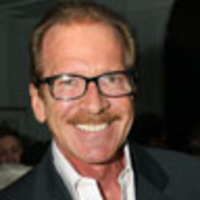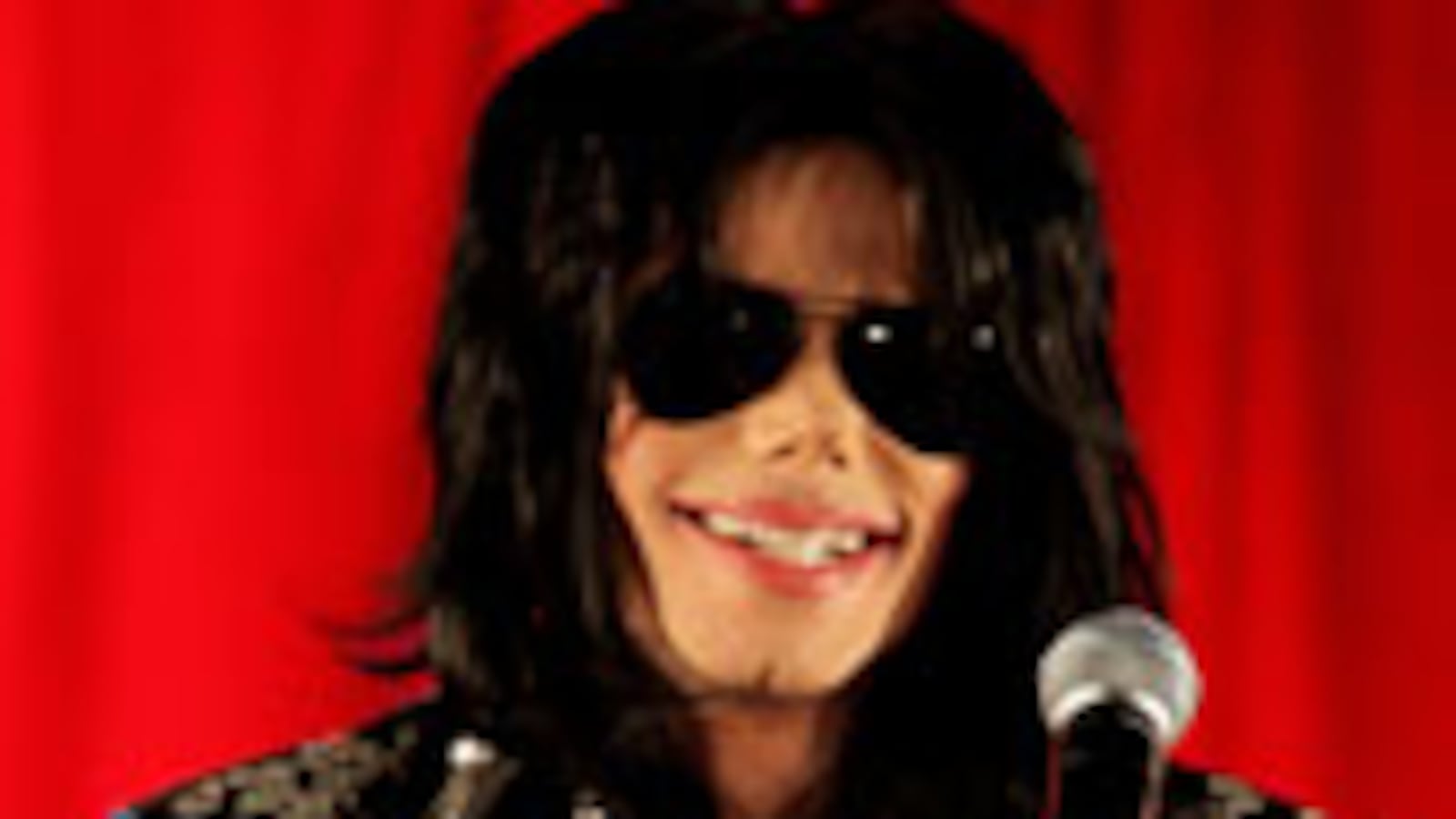
Last March, on a day when the stock market tumbled (again) and unemployment went up (again), there was some good news: Michael Jackson held a long-awaited news conference in London to announce that he has found employment in this impossible economy and that he would perform ten final concerts in London, at the new O 2 Arena.
Now if this comes as a surprise to you that Michael Jackson was heading back onstage, imagine what a surprise it was to those who read the last tabloid stories that Jackson was half-blind, needed a lung transplant, and was afflicted with Alpha 1-antitrypsin deficiency, which apparently is as bad as it sounds.
Michael went on stage and said something really meaningful like, “I love you so much,” and then went into the balcony to watch a series of Michael Jackson impersonators do their impersonations for him.
But no, there he was that morning, uniformed in embroidered black and silver, and wearing the darkest sunglasses this side of Jack Nicholson. After keeping screaming fans waiting for 90 minutes (there were traffic problems), Jackson came out and approached a podium loaded with a teleprompter and a microphone. It was bad enough that he couldn’t seem to get used to a mic right away, but I had to wonder what was the teleprompter for? Because all he said basically was, “This is it.” And his mantra, “You have to know I love you so much.” Honestly, this had to be that teleprompter operator’s easiest gig ever. With another “this is it and see you in July,” Michael then disappeared behind the curtain, only to be seen again, apparently, in July.
The news conference and the surrounding excitement about a comeback, which most people speculate is intended to help pay off his massive debt—hey, give him credit, at least he went back to work and didn’t ask for a bailout—was typical Jackson mayhem, but I have to admit he seemed more animated when he left his child-molestation trial and got up on an SUV and danced.
Back in my Access Hollywood days, I was the only TV guy invited to Michael’s 40th birthday party, with the intention of getting the reclusive pop star to finally say something to his fans. As he arrived, his bodyguards—I counted eight—shoved everybody in sight out of the way and he ran up a set of stairs. I ran after him (thinking, “What would Geraldo do?”) and when I got to the staging area he was behind a curtain waiting to greet the others who were invited. It took roughly 40 minutes for Michael and a few handlers to actually decide which curtain to enter from. Finally after what seemed a lifetime, Michael went on stage and said something really meaningful like, “I love you so much,” and then went into the balcony to watch a series of Michael Jackson impersonators do their impersonations for him. With that, the party was over. The next time I almost saw him was after the molestation trial when I was kicked out of Neverland after being invited in. I did get to see the merry-go-round, but I wasn’t allowed to stop and ride the ponies.
As far as comebacks are concerned, I’m generally in favor of them. After all, I went to the Cream comeback tour. I saw one of Dylan’s comebacks. And I’ve attended three Who farewell concerts. (I even, briefly, participated in my own comeback.)
So as Michael planned to re-enter the spotlight at 50 for what could be the last time, I wished one thing for him: that he came out looking and acting like the Michael Jackson we once knew.
I once asked George Harrison why he and those other three guys never made what would have been the greatest comeback of them all. His short answer was “that was then.” His long answer was that “people always think they will feel better if the Beatles get back together and that just isn’t the case. You know,” he said, “if you are in a bad mood and go to the Himalayas to feel better, all you are doing is bringing your bad mood to the Himalayas. You might as well stay in Burbank.” The quiet one was right. What we really wanted was to hear Michael dance and sing the entire Thriller album and know we got our money’s worth.
On that note, Michael, reading the prompter again in March said, “I will sing all the songs my fans want to hear.”
Pat O'Brien has been a broadcaster for more than three decades, including many years as the co-host of Access Hollywood and The Insider. A former anchor for CBS Sports, he is also the author of Talkin' Sports: A B.S.-er's Guide. He divides his time among Los Angeles, New York, and Nantucket.






